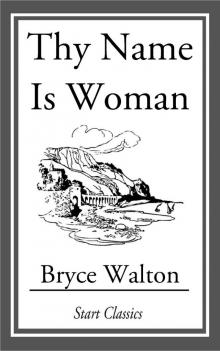Time's Eye


Author: Arthur C. Clarke
Category: Science
Published: 2003
Series: A Time Odyssey
View: 660
Read OnlineSir Arthur C. Clarke is a living legend, a writer whose name has been synonymous with science fiction for more than fifty years. An indomitable believer in human and scientific potential, Clarke is a genuine visionary. If Clarke has an heir among today s science fiction writers, it is award-winning author Stephen Baxter. In each of his acclaimed novels, Baxter has demonstrated dazzling gifts of imagination and intellect, along with a rare ability to bring the most cerebral science dramatically to life. Now these two champions of humanism and scientific speculation have combined their talents in a novel sure to be one of the most talked-about of the year, a "2001" for the new millennium.
For eons, Earth has been under observation by the Firstborn, beings almost as old as the universe itself. The Firstborn are unknown to humankind until they act. In an instant, Earth is carved up and reassembled like a huge jigsaw puzzle. Suddenly the planet and every living thing on it no longer exist in a single timeline. Instead, the world becomes a patchwork of eras, from prehistory to 2037, each with its own indigenous inhabitants.
Scattered across the planet are floating silver orbs impervious to all weapons and impossible to communicate with. Are these technologically advanced devices responsible for creating and sustaining the rifts in time? Are they cameras through which inscrutable alien eyes are watching? Or are they something stranger and more terrifying still?
The answer may lie in the ancient city of Babylon, where two groups of refugees from 2037 three cosmonauts returning to Earth from the International Space Station, and three United Nations peacekeepers on a mission in Afghanistan have detected radio signals: the only such signals on the planet, apart from their own. The peacekeepers find allies in nineteenth-century British troops and in the armies of Alexander the Great. The astronauts, crash-landed in the steppes of Asia, join forces with the Mongol horde led by Genghis Khan. The two sides set out for Babylon, each determined to win the race for knowledge . . . and the power that lies within.
Yet the real power is beyond human control, perhaps even human understanding. As two great armies face off before the gates of Babylon, it watches, waiting. . . .
For eons, Earth has been under observation by the Firstborn, beings almost as old as the universe itself. The Firstborn are unknown to humankind until they act. In an instant, Earth is carved up and reassembled like a huge jigsaw puzzle. Suddenly the planet and every living thing on it no longer exist in a single timeline. Instead, the world becomes a patchwork of eras, from prehistory to 2037, each with its own indigenous inhabitants.
Scattered across the planet are floating silver orbs impervious to all weapons and impossible to communicate with. Are these technologically advanced devices responsible for creating and sustaining the rifts in time? Are they cameras through which inscrutable alien eyes are watching? Or are they something stranger and more terrifying still?
The answer may lie in the ancient city of Babylon, where two groups of refugees from 2037 three cosmonauts returning to Earth from the International Space Station, and three United Nations peacekeepers on a mission in Afghanistan have detected radio signals: the only such signals on the planet, apart from their own. The peacekeepers find allies in nineteenth-century British troops and in the armies of Alexander the Great. The astronauts, crash-landed in the steppes of Asia, join forces with the Mongol horde led by Genghis Khan. The two sides set out for Babylon, each determined to win the race for knowledge . . . and the power that lies within.
Yet the real power is beyond human control, perhaps even human understanding. As two great armies face off before the gates of Babylon, it watches, waiting. . . .
 Borrowed Time
Borrowed Time Thy Name Is Woman
Thy Name Is Woman The Magnificent Wilf
The Magnificent Wilf_preview.jpg) Oil to Ashes 2, "Truce" (Linc Freemore Apocalyptic Thriller Series)
Oil to Ashes 2, "Truce" (Linc Freemore Apocalyptic Thriller Series) Love Beyond Oceans
Love Beyond Oceans The Spirit Rebellion
The Spirit Rebellion A Burden Shared
A Burden Shared March to the Stars
March to the Stars